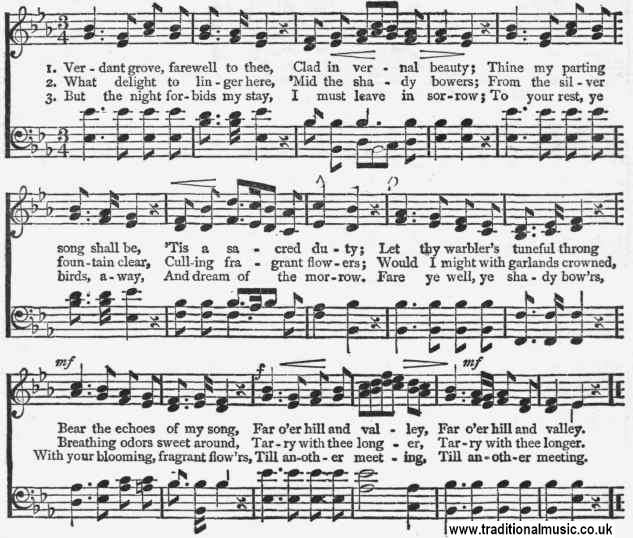Favorite Songs and Hymns For School and Home, page: 0200
450 Of The World's Best Songs And Hymns, With Lyrics & Sheet music for voice & piano.
| Share page | Visit Us On FB |
|
Mendelssohn, Bartholdy Felix, was the son of a rich merchant and banker of Hamburg, and was born in that city A. D. 1809. The early development of ihe musical faculty in him forces him into compari�son with the precocious Mozart, but his more fortunate position saved him from the premature drudgery of public display. His earliest musical instructor was the natural guardian of his infancy, his mother. At eight years of age he was esteemed a prodigy, and not with�out reason. He could then play at sight the most intri�cate scores of Bach, and, without premeditation, trans�pose most difficult exercises into all sorts of keys. He also evinced a wonderful faculty in extemporizing upon a given theme. At this period he was put un- |
der the care of the severe but methodical Zelter, a man not disposed to give way to fervid impressions, yet warmly devoted to his "glorious boy." Zel-ter, writing to Goethe, in 1821, tells him, "I desire to show your face to my favorite pupil before I die." Upon the circle which surrounded Goethe as its cen�tre, the young musician made a profound impression, winning, at the same time, the affection of all. Be�fore his father would allow him to devote himself to music as his profession, he took him to Paris to consult the then aged Cherubini. The ordeal proposed by that consummate musician to test theproficiency of the aspirant was the composition of a Kyrie for chorus and full orchestra, which was accomplished to the |
|||
|
FAREWELL TO THE WOODS.
Moderate Time. |
German Air. |
|||
 |
||||
|
perfect satisfaction of the renowned j udge. Through�out the period of his celebrity, he was not only dis�tinguished for his composition, but still more as a performer. Language was exhausted in the attempt to describe his excellence as a pianist, and the churches were invaded by crowds, who always thronged the aisles when he was expected to play on the organ. In a word, the only thing he could not do on the organ was to "play the people out." The more effectively he played, the more fixed the congregation remained, and an instance is on record how once at St. Paul's cathedral, the vergers managed to check the energy of the performer by stopping the bellows of the in�strument. In 1846,lie completed, and himself con�ducted, at Birmingham, the oratorio of Elijah, the reception of which left his warmest admirers nothing |
to desire, but it was in the decrees of that unsearchable Providence which often shows us the highly gifted
"------To mock our fond pursuits,
And teach our humbled hopes that life is vain,"
that this star, the cynosure of all observers, should sink to the horizon before it had reached its culmina�ting point. The honors which accumulated upon him were oppressive to the constant sense of fatigue that possessed him. To a young friend who begged him to play after the triumphant conclusion of the Birmingham festival, he replied mournfully that he could not. The abiding shadow of the unseen world was settling upon him. In 1837, he had accepted the post of director of the concerts at Leipsic In this city he continued to reside till his death, which happened in 1847, at the age of thirty-eight years. |
|||